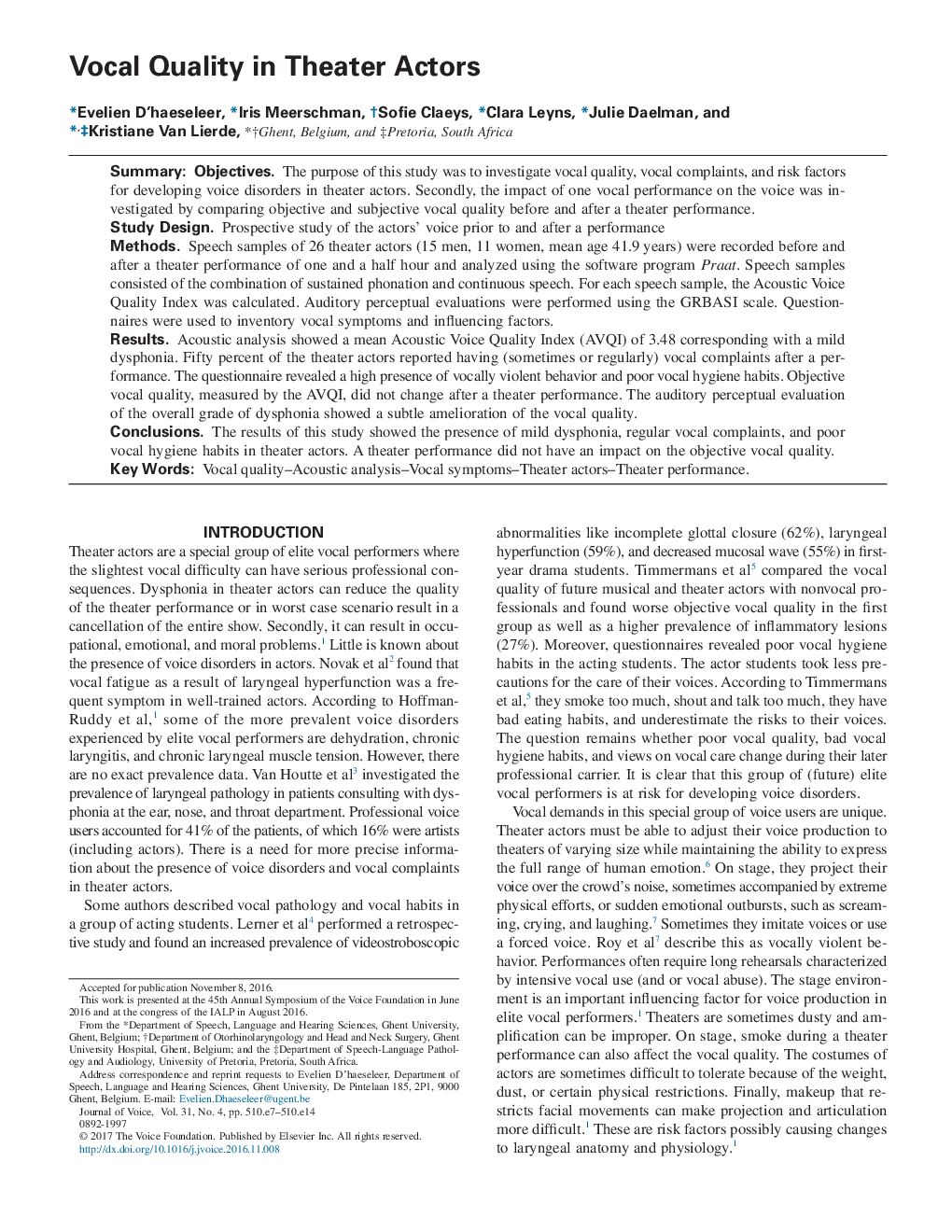| Article ID | Journal | Published Year | Pages | File Type |
|---|---|---|---|---|
| 5124195 | Journal of Voice | 2017 | 8 Pages |
SummaryObjectivesThe purpose of this study was to investigate vocal quality, vocal complaints, and risk factors for developing voice disorders in theater actors. Secondly, the impact of one vocal performance on the voice was investigated by comparing objective and subjective vocal quality before and after a theater performance.Study DesignProspective study of the actors' voice prior to and after a performanceMethodsSpeech samples of 26 theater actors (15 men, 11 women, mean age 41.9âyears) were recorded before and after a theater performance of one and a half hour and analyzed using the software program Praat. Speech samples consisted of the combination of sustained phonation and continuous speech. For each speech sample, the Acoustic Voice Quality Index was calculated. Auditory perceptual evaluations were performed using the GRBASI scale. Questionnaires were used to inventory vocal symptoms and influencing factors.ResultsAcoustic analysis showed a mean Acoustic Voice Quality Index (AVQI) of 3.48 corresponding with a mild dysphonia. Fifty percent of the theater actors reported having (sometimes or regularly) vocal complaints after a performance. The questionnaire revealed a high presence of vocally violent behavior and poor vocal hygiene habits. Objective vocal quality, measured by the AVQI, did not change after a theater performance. The auditory perceptual evaluation of the overall grade of dysphonia showed a subtle amelioration of the vocal quality.ConclusionsThe results of this study showed the presence of mild dysphonia, regular vocal complaints, and poor vocal hygiene habits in theater actors. A theater performance did not have an impact on the objective vocal quality.
